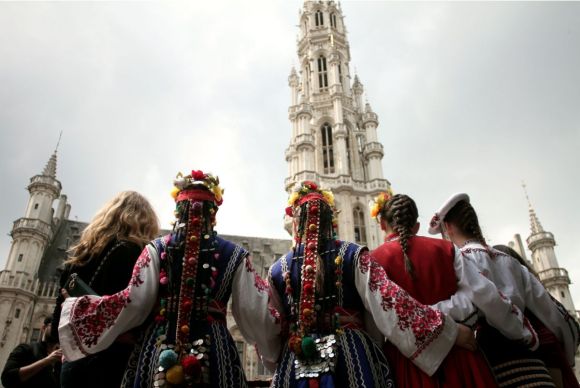
Tolerance, solidarity, equality. These are just part of the values we commonly associate with the pan-European idea – the personal identification with Europe in a political and cultural context. However, one region often misses out on this shared feeling of belonging – the Western Balkans.
By Viktoria Hristova (Edited by Marta Silvia Viganò)
The prospect of the Western Balkans’ integration within the European Union has been a subject of long debate. With a new 30-billion euro investment plan in the region, the EU plans to facilitate economic growth and green transition in the former Yugoslavian states. Despite these efforts, citizens remain sceptical. “We were promised that the doors to Europe will be open to us. We are Europe,” says BimBimma, a hip-hop artist from Albania.
The EU4Balkans workshop was held as a part of the 19th European Week of Regions and Cities in Brussels, Belgium. Although avoiding to address criticisms directly, the workshop presented some of the EU’s attempts to increase social, digital, and cultural inclusion across the Western Balkans through interregional collaboration and artistic expression.
Social inclusion for stronger equality
“Extending a helping hand to those abandoned by the community” is at the core of social inclusion, stated Sławomir Tokarski, Director at DG REGIO. The EU4Balkans workshop started out by presenting three Interreg projects – cross-regional collaborations with particular focus on marginalised communities aiming to promote social inclusion across the Western Balkans.
Danijela Veselinović first introduced Orkestar Danijela – a Serbian brass instrument band with musicians from all age groups and levels of experience. Veselinović is the first woman in Serbian music history to lead a brass band. Danijela tries to break the gender stereotype in the Serbian music sector, showing that playing brass instruments is an admirable hobby or profession for all music enthusiasts regardless of gender.
Gender barriers, however, are just one of many obstacles to true social equality. The Interreg IPA Cross-border Cooperation Programme between Romania and Serbia facilitates children’s involvement in local culture through museum visits and art classes. Over 1100 children with disabilities, or those from Roma communities, currently benefit from free cultural activities within their region.
Interreg is also a major facilitator in Greece and North Macedonia. With the help of software developers within the region, disadvantaged young graduates can seek better employment opportunities by learning new digital skills through gameplay.
Digital inclusion for better education
With a daily tsunami of information being thrown at media consumers, digital literacy stands at the forefront of educational improvement. Rural areas across the Western Balkans often suffer from a lack of digitalisation or insufficient knowledge about digital resources available to them.
Fjoralba Caka, former Deputy Minister from Albania, commented on the need for investing not only in technology itself but in the teaching of digital competency skills for navigating our new ‘connected’ reality. Caka also highlighted the significance of journalists in digital literacy education, for instance in teaching how to distinguish fake news.
Digital tools also pose an opportunity for the health and medical sector. Smart wearables and online medical consulting were discussed as simple solutions to citizens in remote areas with difficult access to health facilities, which is the case in many Balkan rural areas.
Adrijana Nikitović, an EU Young Ambassador from Serbia, comments on the local digital challenges in many Serbian rural areas. Although many citizens own smartphones, few have the digital literacy to effectively use them. ““You are muted” was among the most used phrases of 2020,” says Nikitović, “and this reflects the new reality we have to adapt to”.
Cultural inclusion for freedom of expression
Rather than physical or material obstacles, cultural inclusion aims to remove barriers in the perception of ourselves and others. The annual Balkan Trafik! Festival, co-funded by the Creative Europe Programme of the EU, provides a platform to do just that. With 400 artists and 6000+ attendees over four days, the festival is a “meeting of cultures” from across the Balkans and Western Europe.
“We want to exceed prejudices by showing what brings us all together – culture, the arts, music, film, dance, gastronomy, wine,” says Nicolas Wieërs, cultural producer of the festival. With debates on freedom of expression and the environment, as well as local photo exhibitions and mural painting initiatives, Balkan Trafik! exposes not only the differences but also similarities across Western Balkan states – language, food, music and everything in between.
The EU4Balkans workshop ended on a positive (and a musical) note, with a performance by the Balkan Jazzović Quintet. “What I've always wanted to accomplish is to open our minds to our differences through the arts”, says Wieërs. ”That is the goal of the festival – no more, no less.”



